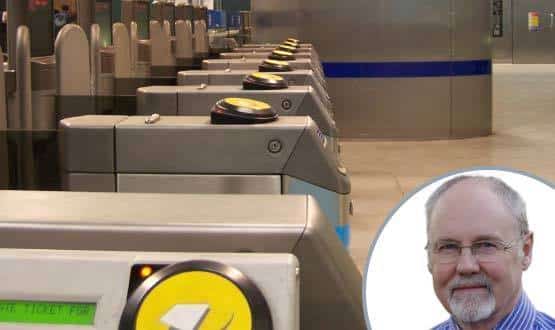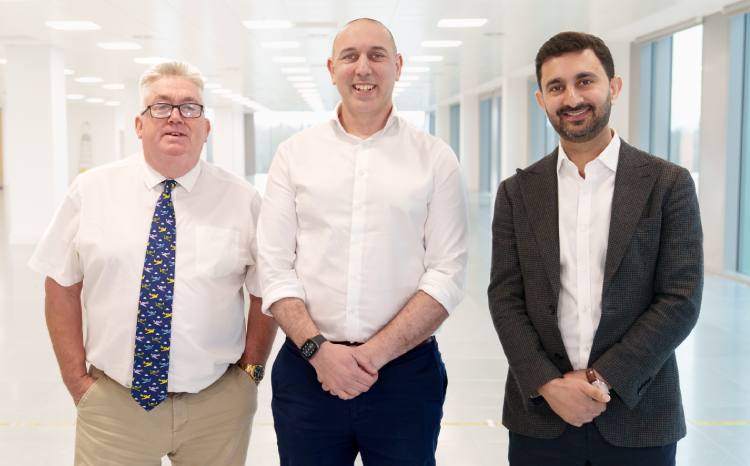Enter the CCG: struggles to enter Skipton House
- 12 October 2015

Skipton House is a large building in south London, housing NHS administrators and managers. There are turnstiles to get in – but unless you hold an electronic building pass you’ll have to wait at reception until someone from the unit you’re visiting collects you.
I go there approximately once a month – mainly to attend national committees by video link to Leeds. I’ve asked for an electronic pass, but you have to be a very regular visitor to be given one. Consequently, on a number of occasions, I’ve nearly been late for a meeting because nobody ‘upstairs’ knew I was due to attend a specific video conference.
Indeed, just last month one of the Health and Social Care Information Centre’s senior managers had to break off his rail journey from Leeds to the South Coast just to admit me into the building.
Then his train was delayed…
A month earlier that same manager had experienced problems himself: because he hadn’t been inside Skipton House for more than a month, his electronic pass had automatically expired.
No matter that it had an expiry date of 2017 printed on it, or that he oscillates between Quarry House at Leeds, Skipton House at the Elephant and Castle and, most likely, a large number of other high-powered NHS establishments.
At Skipton House he was barred from entering by the heavies on the door until he had had his identity verified and his card revalidated – all of which took time and threatened to make us both late for the video-linked meeting.
By itself, a policy of excluding people who shouldn’t normally be in the building is a good way to make sure that it isn’t used by those who genuinely shouldn’t get in — protestors, thieves and even terrorists.
But has anyone in the NHS stopped to consider the constant interference that its response can inflict on the lives of ordinary NHS workers?
And what about the psychological effect on genuine visitors? I’m in my fourth decade of NHS work (which, as a GP, has of necessity sometimes meant being alone with female patients in their bedrooms) but clearly I can’t be trusted with an electronic building pass for occasional use. What does that say about how the NHS regards me?
Some local concerns
It’s not just security that causes grief to healthcare workers. One of the big drives in recent years has been the attempt by various medicines’ management bodies to swap patients from more expensive medication to that deemed just as effective but cheaper.
Taken in isolation this looks great. But consider the plan a few years ago to change patients from atorvastatin to simvastatin (this was before atorvastatin was out of patent, and the price differential was large). An easy job, you might think – until you realise what is required to do it properly.
GP practices had to: list everyone on the expensive drugs; contact them; explain what was being proposed and get their agreement; swap them to the new drug; arrange and perform a check blood test six weeks later; see them with the results, and either create a continuing prescription, or – if the target cholesterol hadn’t been met – alter the dose and perform all the blood tests again – and again, and again – until the dose was just right.
What on paper appeared to be a simple job to save money turned instead into a complicated set of tasks taking up precious appointment slots and large amounts of clinician time.
A similar project currently requests GPs to change repeat prescriptions to just 28 days’ worth of medication, rather than 56, to avoid drug wastage.
The NHS may save some money in this way – but what about the hidden costs to practices of issuing, checking and dispatching twice as many prescriptions; the extra work for the pharmacists; the increase in dispensing fees; and the significant interruption to patients’ lives from having to order and pick up their prescriptions twice as often?
The common theme
The common theme here is that all these systems are beneficial; but only when taken in isolation. If their scope isn’t holistic enough, then in the wider scheme of things they ultimately risk being inefficient, intrusive and counter-productive, loading staff with extra work for questionable net benefits.
Why does this happen, especially in a health service which is so clearly dedicated to providing holistic care – at least for the patients? I think there are two main reasons.
The first is that the staff devising these schemes often have to operate within a too constricted set of parameters. Those who devised Skipton House’s security policies seem to have done so without contemplating the impact on ‘irregularly regular’ visitors.
Equally, medicines’ management and other money-saving policies can be developed only in the light of material costings without anyone thinking to include precious ‘incidental’ staff time.
The second reason is that managers may not know in sufficient detail what their staff actually do or exactly how they do it. Therefore, they don’t realise how much their own decisions may impact on day-to-day duties and responsibilities.
Unfortunately, the net result is the same. The real cost falls on the frontline workers, either by subtly undermining their sense of worth as NHS staff, or by loading them with unpaid extra work in the name of ‘efficiency’.
The cure?
Given that ‘looking after the staff’ is something to which the NHS pays lip service but often doesn’t do that well, what should be our reaction?
The answer is simple: from the highest to the lowest, each of us needs to ensure that we truly understand the work of those healthcare staff who will be affected by any decisions we make.
We need to consult with them beforehand, to try to enter into their world, in order to think through the many and varied occasions when our decisions will impact upon them.
We need to ask them about our proposed interventions, and be prepared to amend our proposals in the light of their comments.
Finally, we must be prepared to relay their concerns upwards so that those above us who may have no hands-on experience of the front-line work under consideration can at least be put in the picture before decisions are finally made.
And if you want all this in a nutshell, simply cost out the staff time and measure the intrusions needed to fulfil the details of your proposals. You may get a nasty shock.

 |
Dr John LockleyDr John Lockley is clinical lead for informatics at Bedfordshire Clinical Commissioning Group and a part-time GP. |
 |





